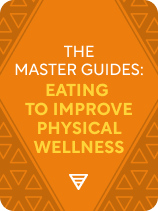

This article is an excerpt from the Shortform book guide to "The Master Guides: Eating to Improve Physical Wellness" by Shortform. Shortform has the world's best summaries and analyses of books you should be reading.
Like this article? Sign up for a free trial here.
Should you take supplements? Do whole foods provide better nutrition than supplements? What nutrients might you need to supplement a plant-based diet?
Nutrition experts emphasize the importance of getting nutrients from whole foods rather than supplements. Their research reveals that isolated nutrients often fail to provide the same benefits as those found naturally in foods.
Keep reading to discover why you can skip most supplements and which ones you might actually need.
Should You Take Supplements?
Plant-based whole foods provide many nutrients and microbes. So, should you take supplements? It might seem that supplements can replicate the benefits of whole foods, and it can be tempting to eat processed foods and try to compensate with supplements. While the food industry promotes supplements and often fortifies processed foods with isolated nutrients such as calcium or vitamins, several researchers contend that this approach misses the synergistic benefits of eating whole plant foods.
Extracting specific compounds from their whole-food context ignores the myriad relationships and factors within intact foods that collectively contribute to health impacts. For example, in How Not to Die, Michael Greger cites research showing that vitamin C supplements don’t provide the same benefits as eating whole foods with vitamin C.
In his book In Defense of Food, Michael Pollan echoes this sentiment, asserting that how you digest antioxidant-rich food impacts its absorption, and digesting antioxidants in a whole food appears to be most beneficial. This may be because there are several types of antioxidants within each fruit and vegetable. In one leaf of thyme, for example, there are dozens of antioxidants, and there’s no way to determine which one, if any, helps the body and whether that benefit is an isolated or compound effect. An interaction with fiber or another compound could be what activates or promotes antioxidant behaviors. By eating whole foods instead of supplements, Pollan says, you can receive the benefits even without knowing how it works physiologically.
T. Colin Campbell and Thomas M. Campbell II (The China Study) also caution against supplements, arguing they’re poorly regulated, and you don’t always know what you’re getting when you buy them. They may have unforeseen side effects and some can even cause harm. For example, many researchers caution against taking beta-carotene supplements because they’ve been shown to increase lung cancer risk, and vitamin C supplements can promote oxidative stress.
Exceptions to Avoiding Supplements
Though they generally advise whole food sources over supplements, the Campbells and Greger acknowledge that vegans and vegetarians may require a B12 supplement, as this vitamin is found only in animal products. Greger also suggests that you supplement a few other nutrients if you’re on a plant-based diet: vitamin D (due to lack of sunlight exposure in winter for those in northern latitudes), iodine, and omega-3s (via algae oil or yeast products to avoid mercury and other toxins in fish oil).

———End of Preview———
Like what you just read? Read the rest of the world's best book summary and analysis of Shortform's "The Master Guides: Eating to Improve Physical Wellness" at Shortform.
Here's what you'll find in our full The Master Guides: Eating to Improve Physical Wellness summary:
- The two simple guidelines for eating well
- How to distinguish beneficial foods from harmful foods
- Why supplements aren’t worth it—except in some cases






